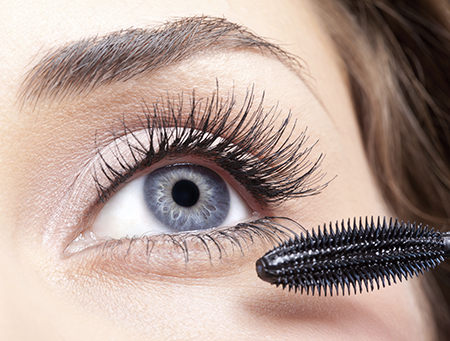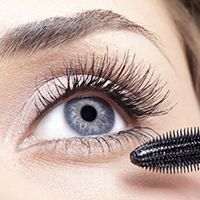 The research was part of undergraduate, Hayley Thomason’s final-year research project
The research was part of undergraduate, Hayley Thomason’s final-year research project
An end to mascara testing on animals could be in sight thanks to tiny organisms nicknamed ‘slipper’ and ‘eyelash’.
Mascara is a mild irritant, and rabbits have, historically, been used to test how much discomfort new products can cause. However, a cheaper and more reliable test is now being developed by scientists at the University of Liverpool, involving miniscule protozoa. This will remove animal cruelty from the equation.
Protozoa
The scientists from the University’s Institute of Integrative Biology were able to examine potential toxicity caused by mascara, based on the growth of the protozoa when placed in experimental chambers containing the cosmetic.
Six different brands of mascara were tested, by painting it on small glass plates and placing these in the chambers. The protozoa and their food were then added. The protozoa– the slipper ciliate (Paramecium caudatum) and the eyelash ciliate (Blepharisma japonicum) – were chosen carefully because of their large size, their historic use as model organisms, and their genetic similarities to humans.
Dr David Montagnes, who supervised the project suggests: “This test has great potential for reducing the use of rabbits as it is both cheap and reliable, and while the protozoa have a similar metabolism to animals they are not classed as such. Indeed, the traditional test used on rabbits – the Draize test – was developed more than 40 years ago and is both time consuming and expensive, as well as giving rise to ethical issues.”
Montagnes went on to add: “When you can develop a simpler and cheaper alternative, there is really no need to test cosmetics on animals.”
Hayley Thomason
The research was part of an undergraduate final-year research project (the senior author is the student, Hayley Thomason), as such it was funded by the School of Life Sciences at the University of Liverpool. It is now published in the International Journal of Cosmetic Sciences: doi: 10.1111/ics.12106
Hayley said: “I’m very keen to establish a career as a cosmetic scientist and having the opportunity to work on a research project like this is an important step on that path.”
